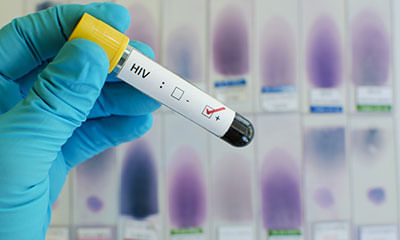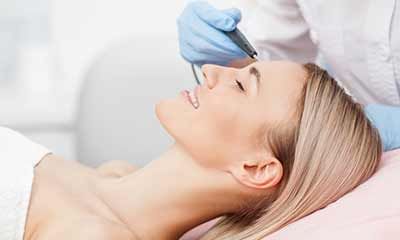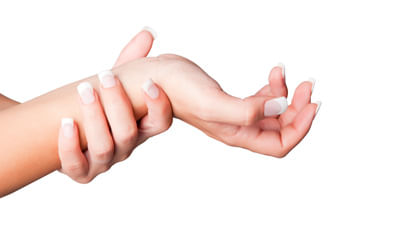Abnormal Condition Of The Lip
I'm 26 years old female. I have been experiencing severe hair fall for several years. Even after trying several oils and ...
Ask Free Question
Regularly wash your hair with mild shampoo. 1. Vitamin for hair loss.(a, b and c) 2. Enrich diet with protein. 3. Scalp massage with essential oils. Take coconut oil and heat it up so that it is warm, but not too hot. Massage your scalp with this hot oil for a few minutes. 4. Avoid brushing wet hair. 5. Keep yourself hydrated. 6. Put on a shower cap for an hour then shampoo your hair. It helps to stop hair loss and promote hair growth. 7. Avoid hairstyles that pull on the hairline. 8. Ditch hair tools that use high heat. 9. Be wary of chemical processing. 10. Drink water to hydrate your body. 11.U can mix arnica q (25 drops) and jaborandi q (15 drops). Apply on scalp. Wash hair next day. Do it twice a week you can contact me for a detailed consultation.
Hi doctor. I am a 23 year old male. I happened to have a sexual encounter on 23/12/2019, it was with a male as well. I f ...
Ask Free Question
Hello. Please be aware no test in the world can detect virus within 48 hrs after exposure. Totally wrong and misleading information. The first screening test is 4th gen combo test which is done at 30 days of exposure and finally at 90 days after exposure. Pl do not shop around wth different streams of Dr. or google Dr. Consult a qualified physician or Dr. gilada for right advice .thnx.
I am 22 years old female and I am suffering with abnormality in my labia minora. The inner lips are projected to outside ...
Ask Free Question
Hi Manju, we will not able to comment on this unless you get yourself examined by a gynecologist. Yes there are many procedures available such as labiaplasty which you can consider to improve the structure. It is the most commonly performed vaginal rejuvenation procedure and it can relieve symptoms women experience from twisting and tugging of the labia. However, the first step would be to show a gynecologist to understand if that is even required in your case.
Hello Doctor, She have problem of itching and red dots in her vagina door it's pain full also what can we do? ...
Ask Free Question
CAUSES: Irritants Exposing the vagina to irritating chemicals can cause vaginal itching. These irritants may trigger an allergic reaction that creates an itchy rash over various areas of the body, including the vagina. Common chemical irritants include: soap bubble baths feminine sprays douches topical contraceptives creams ointments detergents fabric softeners scented toilet paper If you have diabetes or urinary incontinence, your urine may also cause vaginal irritation and itching. Skin diseases Some skin diseases, such as eczema and psoriasis, can cause redness and itching in the genital region. Eczema, also known as atopic dermatitis, is a rash that primarily occurs in people with asthma or allergies. The rash is reddish and itchy with a scaly texture. It may spread to the vagina in some women with eczema. Psoriasis is a common skin condition that causes scaly, itchy, red patches to form along the scalp and joints. At times, outbreaks of these symptoms can occur on the vagina as well. Yeast infection Yeast is a naturally occurring fungus that’s normally present in the vagina. It usually doesn’t cause problems, but when its growth goes unchecked, an uncomfortable infection can result. This infection is known as a vaginal yeast infection. It’s a very common condition, affecting 3 out of 4 women at some point in their lives, according to the Mayo Clinic. The infection often occurs after taking a course of antibiotics, as these types of medications can destroy good bacteria along with the bad bacteria. The good bacteria are needed to keep yeast growth in check. The overgrowth of yeast in the vagina can result in uncomfortable symptoms, including itching, burning, and lumpy discharge. Bacterial vaginosis Bacterial vaginosis (BV) is another common reason for vaginal itching. Like a vaginal yeast infection, BV is triggered by an imbalance between naturally occurring good and bad bacteria in the vagina. The condition doesn’t always cause symptoms. When symptoms do appear, they typically include vaginal itching and an abnormal, foul-smelling discharge. The discharge may be thin and dull gray or white. In some cases, it might also be foamy. Sexually transmitted diseases Numerous STDs can be transmitted during unprotected sexual intercourse and cause itching in the vagina. These include: chlamydia genital warts gonorrhea genital herpes trichomoniasis These conditions can also cause additional symptoms, including abnormal growths, green or yellow vaginal discharge, and pain while urinating. Menopause Women who are going through menopause or who have already done so are more at risk for vaginal itching. This is due to the reduction of estrogen levels that occur during menopause, which leads to vaginal atrophy. This is a thinning of the mucosa that can lead to excessive dryness. The dryness can cause itching and irritation if you don’t get treatment for it. Stress Physical and emotional stress can cause vaginal itching and irritation, though this isn’t very common. It might occur when stress weakens your immune system, leaving you more prone to the infections that cause itching. Vulvar cancer In rare cases, vaginal itching may be a symptom of vulvar cancer. This is a type of cancer that develops in the vulva, which is the external part of the female’s genitals. It includes the inner and outer lips of the vagina, the clitoris, and the opening of the vagina. Vulvar cancer may not always cause symptoms. However, when symptoms do occur, they may include itching, abnormal bleeding, or pain in the vulvar area. Vulvar cancer can be treated successfully if your doctor diagnoses it in the early stages. This is another reason that yearly gynecologist checkups are essential. Suggestion: Use warm water and a gentle cleanser to wash your genital area. Avoid scented soaps, lotions, and bubble baths. Avoid using feminine hygiene products, such as sprays and douches.
At the time me and my husband have sex I'm getting Soo much pain. Can you help me why. ...
Ask Free Question
Dyspareunia is a term used for pain felt in the genital area or pelvis during or after having sex (intercourse). Nobody really knows exactly how common it is, as many women never seek medical help. However, questionnaires asking women if they have symptoms suggest that somewhere between 1 and 4 out of 10 women experience it. Most commonly, this is early in their sexual lives or around the menopause. There are many causes of dyspareunia, most of which are not serious or damaging in nature, but all can be detrimental to your sex life and ultimately may lead to relationship difficulties. It can be a vicious circle, with pain leading to nervousness about having sex, and nervousness leading to dryness and further pain. It's also not uncommon for dyspareunia to remain after the cause has been treated, particularly if things have been left untreated for a while. For this reason, it is important to seek help early, so that treatable causes can be discovered and managed. This leaflet discusses the types and possible causes of dyspareunia. What is dyspareunia? Dyspareunia is pain felt in the genital area or pelvis during or after having sex (intercourse). It may be thought of as either superficial dyspareunia or deep dyspareunia. They have different causes and treatments and, although it's possible to experience both at the same time, most women find that their dyspareunia is predominantly one or the other type. Superficial dyspareunia This is pain felt in the lips of the vagina (labia), at the vaginal entrance (introitus) and the lower part of the vagina. It typically begins with penetration or very early on after intercourse has begun. It is sore and instant. It is usually quickly relieved by stopping penetration, although you may be sore to the touch afterwards for a little while. The causes of superficial dyspareunia are usually local problems of the labial, vaginal and perineal skin (the perineum is the area of skin between the vaginal opening and the back passage). Deep dyspareunia This is the term for pain felt deeper in the pelvis during or after intercourse. It can also spread to involve the fronts of the thighs. It may be sharp or dull, may stop when penetration stops or can continue for minutes or even hours. The causes of this type of pain usually lie rather deeper in the pelvis. Causes of superficial dyspareunia Skin bridge Formation of a little bridge of scar tissue at the very back of the vaginal entrance (introitus) is common after childbirth, particularly if you have had a cut between the vagina and back passage (anus) - a procedure called episiotomy. The scar tissue contains nerve endings and is very sensitive, and so it causes pain on penetration. The pain tends to become worse as having sex (intercourse) continues, as the skin bridge becomes rubbed by the continuing rubbing of penetration. Intact hymen The hymen is a membrane that lines the vaginal opening. Early in your sex life the hymen is broken down by the act of having sex. In many young women it will already have been stretched by use of tampons. The name 'intact hymen' is misleading, as the hymen does in fact have a small hole in it from birth. This hole becomes larger little by little as girls grow older. However, the hymen can be quite thick and the hole not quite large enough. This can mean that early in her sexual life a woman my feel pain from the hymen as it is forced open the first time she has intercourse. The pain is superficial, felt at the entrance to the vagina as soon as penetration is attempted and may prevent it from taking place. Vaginismus Vaginismus causes a powerful and often painful contraction of the muscles around the entrance to the vagina, which makes penetration painful or impossible. It may also prevent the use of tampons and any sort of gynaecological examination. The spasm of vaginismus is not something you can cause deliberately; it's completely outside your control. It may seem to begin for no reason but can also result from a painful or worrying experience of sex, when it becomes a kind of protective reflex. However, vaginismus is upsetting and dispiriting for both halves of a couple, as it can prevent the enjoyment of sex for many years and can prevent sex completely. Once it has begun, fear of failure and nervousness about not being able to have sex make it worse. It's important to seek help to break the cycle of anxiety and pain. Vaginismus is not difficult to treat but your doctor may need to refer you to a psychologist or specialist physiotherapist. Bartholinitis Bartholin's glands are a pair of glands on either side of the vagina, in the tissues of the wall. They can become inflamed and tender causing Bartholinitis and this will lead to pain during sex. Occasionally, the glands swell during sex, so that it starts off as painless but then becomes painful as it continues. See separate leaflet called Bartholin's Cyst and Abscess for more details. Vulvodynia This is a very troublesome condition where the vulval area becomes painful and extremely sensitive to pressure and touch. It can be accompanied by severe pain on attempted penetration. It can also cause the vulval area to be painful touched and during activities of everyday living. It can lead to frustration and depression, as symptoms can be very long-standing. The causes are uncertain but may involve the nerves in the area becoming much more sensitive than normal and the way the brain communicates wtih these nerves changing in some way. Treatment includes the use of emollient soap substitutes, creams that numb the area, medicines that lessen pain, physiotherapy and cognitive behavioural therapy. Lichen sclerosus This is a scarring skin condition which may affect women of any age, including children. It can affect men too. It results in thinning of the skin of the genital area, together with formation of white patches. It may be caused by the immune system. It causes itching and pain, which can last for a very long time. It's often mistaken for thrush as it can be very itchy and sometimes slightly sore. Lichen sclerosus carries a small risk risk of cancer of the genital skin. For this reason it should be diagnosed and treated - treatment is usually with regular application of creams. See separate leaflet called Lichen Sclerosus for more details. Female genital mutilation Female genital mutilation (which used to be known as female circumcision), involves varying degrees of mutilating surgery to the genitals of a girl. In the more extreme forms, the vagina is stitched shut. Following genital mutilation there is usually permanent scarring, which may lead to damaged nerves and pain. Any of these issues can cause pain on penetration and may make sex impossible. Vaginal abnormalities Very rarely, abnormalities of the vagina itself make sex painful or even impossible. These include pieces of extra tissue inside the vagina which are present at birth (vaginal septa). Causes of superficial and deep dyspareunia Vaginal trauma The vagina is pretty flexible and strong and usually recovers well from the stretch and (sometimes) small tears of childbirth. However, more significant injury to the vagina - for example, from difficult childbirth or mutilation - can lead to scarring and then to pain and difficulty during sex (intercourse). Vaginal or genital infection Infections of the vagina and the area around it cause inflammation of the tissues and so commonly cause pain on having sex. Infection may be with thrush (candida - a yeast that often lives in the bowel), with viruses such as herpes and with germs (bacteria). A wide range of bacterial infections can infect the vagina. Some (but by no means all) are sexually transmitted. The vagina is not always sore and itchy before sex but becomes so afterwards. There is often a coloured discharge and you may notice an offensive smell. See separate leaflets called Vaginal Thrush (Yeast Infection), Genital Herpes and Bacterial Vaginosis for more details. Vaginal dryness Sometimes pain during sex is due to lack of lubrication, meaning that the vagina is too dry. Normally, the vagina produces secretions which keep it moist and these increase when you become sexually aroused. If there isn't enough foreplay, or you are not aroused enough, you may not produce enough secretions to make penetration comfortable. However, it isn't always as simple as that. There may be reasons why you don't produce the secretions that you should. These can include psychological reasons such as nervousness because sex has previously been uncomfortable; anxiety around becoming pregnant; or anxiety around waking your sleeping children. Dryness can also be for physical reasons - the vagina tends to be drier after the menopause (see below). Some medicines can cause vaginal dryness, including some contraceptive methods. Vaginal dryness is also associated with a condition called Sjögren's syndrome, in which the body's secretions are generally rather reduced. Finally, pregnancy itself can make the vagina dry during intercourse (although it can also have the opposite effect). Vaginal atrophy After the menopause the levels of hormones in your body fall - particularly the level of oestrogen. Oestrogen is the hormone that keeps the vaginal wall strong and resistant. It increases the blood supply and the level of secretions and makes the wall softer and more stretchy. Therefore, when oestrogen levels fall after the menopause, the tissues become thinner, less stretchy and less well lubricated. Sometimes they can become as fragile and delicate as the vaginal tissues of young girls (who have not yet reached puberty and started their periods). There are lots of very effective treatments for this problem. See separate leaflet called Vaginal Dryness (Atrophic Vaginitis) for more details. Causes of deep dyspareunia Deep dyspareunia can be caused by the genital organs themselves but may also be caused by other structures in the tummy (abdomen) that can be easily knocked during sex (intercourse). There are therefore many possible causes of deep pain in the tummy during sex. Cervical pain The neck of the womb (cervix) should not normally be painful. However, if can become infected by many of the organisms which can infect the vagina - particularly herpes. If the cervix becomes inflamed then knocking it with the penis during sex may cause deep pain in the pelvis and sometimes across the fronts of the thighs. The cervix may also become tender and sensitive if you have an intrauterine contraceptive device, particularly if it is sitting a little too low or falling out. This can cause sudden sharp pains in the cervix during sex. (Fortunately cervical cancer is very rare and does not usually cause painful sex.) Endometriosis Endometriosis is a condition in which little bits of womb (uterine) lining become embedded in other parts of the body. Most usually this is in the ovaries, the Fallopian tubes that link the womb to the ovaries, and the cervix. These bits of tissue bleed whenever you have a period. This blood tends to cause scar tissue formation with sticking of organs to one another, and the whole pelvis can become painful. Endometriosis is typically found in young women, and may only become apparent when they come off the contraceptive pill if they have been taking it for a while. This is because 'the pill' suppresses it and is, in fact, a treatment for endometriosis. Endometriosis causes pain on sex, typically pain that comes on with deep penetration and continues for some time after penetration is over. It also causes painful periods, and women with endometriosis can find it difficult to get pregnant. See separate leaflet called Endometriosis for more details. Ovarian cysts The presence of cysts on the ovaries can cause pain during sex (intercourse). This is because the ovaries can be knocked by the penis during intercourse and this can cause the cysts to leak fluid. It's not unusual to have cysts on the ovaries, as cyst formation is a normal part of the period (menstrual) cycle. However, these 'physiological cysts' are typically very small. Larger cysts are more likely to leak and cause pain, and can be a sign of endometriosis, especially in younger women. In women who have passed their menopause, ovarian cysts are worrying, as they can be a sign of ovarian cancer. See separate leaflet called Ovarian Cyst. Another, harmless form of pain from the ovary is called 'Mittelschmerz. This is pain when an egg is released from the ovary. Pain from Mittelschmerz may not be related to sex at all, and typically lasts for two or three days in the middle of the month - but sex may make it worse when it's there. Fibroids and growths in the womb Fibroids are non-cancerous (benign) growths in the muscle of the womb, which can cause the womb itself to become quite bulky. This is not always painful but it can lead to discomfort during sex. See separate leaflet called Fibroids. Causes related to womb position In some women the womb tilts backwards, rather than forwards; the ovaries then tend to fall backwards too. This can lead to them being knocked in positions involving deep penetration. This can result in deep pain in the pelvis that is more noticeable with deep penetration and which settles slowly when penetration stops or when you change your position. Bowel pain During intercourse the bowel is also knocked and moved. If the bowel is sensitive or tender then this can be the origin of pain during sex. This is particularly likely in women who have Crohn's disease, ulcerative colitis or irritable bowel syndrome, all of which are conditions that cause the bowel to be painful. See separate leaflets called Irritable Bowel Syndrome, Crohn's Disease and Ulcerative Colitis. Pelvic inflammatory disease This is a condition of the Fallopian tubes, the womb and, sometimes, the ovaries. It is caused by infection and makes these organs inflamed. As they tend to move during sex, this is painful. The pain is typically felt deep in the pelvis, is worse with deep penetration and settles slowly when penetration stops. Pelvic inflammatory disease also tends to make you feel unwell, and may cause a temperature and a vaginal discharge. See separate leaflet called Pelvic Inflammatory Disease. Bladder pain The bladder sits on top of your womb, just behind and above your pubic bone. Like the womb, the bladder moves and gets pressed on during intercourse. So, if the bladder is inflamed, this may hurt. Typical causes include urine infections and interstitial cystitis. This is a condition in which the bladder becomes sensitive and painful. It behaves like a urine infection but no infection is present. Summary Symptoms of dyspareunia (pain felt in the pelvis during or after sex) are distressing and depressing. They can affect your sex life, your fertility and even your relationship. Many of the causes have a very simple solution and it is important to seek help if you are experiencing problems.
Hi I have a concern before proceeding for a marriage proposal to a lady. The lady does not have any of these issues. The ...
Ask Free Question
It is very difficult to answer your question. Since you don't have any commitment to the lady whose proposal you have, and you are so vigilant about your future generations, you can take your own descision. These problems though have genetic impact it can not be predicted that your future child born will develop these problems or not.
What to do for hormonal imbalance. I have too much hairy body specially so tensed about upper lips and chin hairs. Perio ...
Ask Free Question
Excessive and unwanted hair growth at different sites of the body like face, chin, upper lips, cheeks, chest, nipples and back. In other words a kind of hair growth which is similar to males. This is called as Hirsutism. It is a genetic condition. It is caused by increased level of androgens or male hormones in blood. The oversensitivity of hair follicles to androgens is one of the reasons of Hirsutism giving rise to excessive and thick hair growth. Obesity and Polycystic Ovarian Disease also are known to produce excessive hair growth in unwanted areas. Take homeopathic treatment without any side-effects. A well selected homeopathy remedy has the capacity to correct hormonal imbalance by stimulating the glands to secrete various hormones in the required manner. Homeopathy directs the way to safe and permanent cure. Homeopathy helps in treating hirsutism or excessive & abnormal hair growth in the following way : Medicines firstly reduce the side effects of allopathic hormonal pills. Remedies act on the various glands to produce the hormones in the required manner. Gradually the hormonal levels become normal. The treatment has dynamic action in revitalization and regulation. As the hormonal levels are within the normal limits the abnormal hair growth reduces substantially. It helps in the reduction of weight which secondarily lowers the level of androgens which are responsible of abnormal and excessive hair growth. Remedies correct the genetic predisposition to the disease. Consult online .
I hv found so many warts at my genital area .i cnt talk abt that to anyone as its so backward area nd everyone has narro ...
Ask Free Question
Only skin vd specialist will be able to help you properly as it is risky to do anything at home alone.
I am having near my private part and its so bad that I can not even sleep at night what to do? ...
Ask Free Question
Vulval itching Itchiness of the vulva is almost never caused by a sexually transmitted infection, but is usually a result of thrush or a skin condition. The lips of the vulva (the labia) are covered by ordinary skin, so the area can be affected by conditions such as eczema and psoriasis. And sometimes only the vulval skin is affected, so the diagnosis may come as a surprise. The usual mistake with vulval itching is to assume that you have thrush, and keep on applying anti-thrush creams that you have bought from a pharmacy. This may actually worsen the condition, because you can become allergic to some of the ingredients. If an anti-thrush cream does not deal with the problem within a few days, or if the itching comes back, see your doctor. If you have a skin condition, and not thrush, you need the appropriate treatment. This section explains the most common causes of vulval itching and what you can do about them. And you can find more information about thrush and trichomoniasis in the section on genital infections. Thrush is a fungal infection caused by Candida albicans. About 1 woman in 5 has Candida in her vagina without it causing any symptoms. Hormones in the vaginal secretions and the friendly vaginal bacteria keep it at bay. But problems can arise when this natural balance becomes upset, and the Candida multiplies. Thrush does not always cause a discharge â the main symptom is itching or soreness, and this gets worse in the week before a period. If there is a discharge, it is usually only slight, does not smell and looks like cottage cheese. Trichomoniasis. Infection with Trichomonas vaginalis can be itchy. Psoriasis is a skin condition that can be extremely itchy when the genitals are involved. The skin usually becomes bright red, often with painful cracks. The affected area may extend to the groin and to around the back passage (the anus) and between the buttocks. Psoriasis on other parts of the body is scaly (check your scalp, knees and elbows), but in the vulval area it tends to be smooth. You can have psoriasis on the vulva without having it anywhere else on your body. Lichen sclerosus is another extremely itchy skin condition affecting the vulva. The itching is often so bad that it can affect a sufferer's sleep. It is most common around the menopause and in girls just before puberty, though it can occur at any age. Its cause is a mystery. The skin looks thin and pale, and the area around the anus may also be affected. If it is not treated, the lips of the vulva eventually shrink, the vaginal opening narrows and sex becomes painful and can tear the skin. Treatment of this condition is simple, and your doctor can prescribe a special steroid cream. Allergies and sensitivities can cause redness and itching. The vulval area seems to be very sensitive to chemicals, probably because the vulva is moist and warm conditions that favour the absorption of chemicals by the skin. It is possible to develop an allergy to almost any chemical substance that comes into contact with the vulva, such as may be present in: skin creams (including anti-thrush creams) perfumes in soaps, bubble baths, shower gels and shampoos disinfectants washing powders and fabric softeners clothing dye (especially yellow) self-adhesive sanitary pads deodorants (including âintimateâ ones). In the past, it was thought that the enzymes in bio washing powders were particularly likely to cause an itchy allergy, but this seems to be a myth (British Journal of Dermatology 2008; 158:1177â81). Excessive washing can irritate the vulval area. Older women who may find it difficult to get into a bath may worry about personal hygiene, with the result that they wash the area too much. There is no need to wash several times a day â once is sufficient. Vulval intraepithelial neoplasia is a condition that usually affects older women, and causes itchiness in only a small area. It occurs because the skin in that area has become abnormal. There is a risk that it could develop into a skin cancer of the vulva, so it is important to see your doctor if you suspect you have this condition. Cancer of the vulva is very rare, and tends to affect mainly older women; itching can be the first sign, or there may be a lump or a sore. Stress or anxiety can cause itching. When you are stressed or anxious, your nervous system is on alert, and small sensations can become amplified into unpleasant itching or even pain. So it is not imaginary, it is real. What you can do about vulval itching Start by trying to eliminate anything that could be causing an allergy or sensitivity â look at the dos and donâts for vulval problems. Avoid swimming while you have the irritation â the chlorine may make it worse. If you have been applying cream from the pharmacy for more than 1 week, and you still have the problem, stop using it. You may have developed a sensitivity to one of the ingredients. If the itch is really bad, you may be scratching in your sleep, causing more damage. Keep your fingernails short and wear cotton gloves when you go to bed.
I am 50 years old left hand fingers are feeling numb from 6 to 7 hours what should I do? ...
Ask Free Question
Pressure upon the arm nerves or vessels causing numbness, tingling or temporary paralysis of the arm may result from: Sleeping with the hand under the head Sitting with the arm hanging over the back of a chair Wearing straps or carrying a bag or rucksack Inflated cuff during measuring blood pressure Raising the Arms Above the Level of the Heart Keeping the hand (s) above the level of the heart during work or sleep can prevent appropriate blood perfusion of the hands, and cause numbness, tingling or partial paralysis of the hand (s) within few minutes. Cold In cold weather, narrowing of the arteries in the hands and fingers can prevent appropriate blood supply and thus numbness, tingling, pain or temporary paralysis of the hands and fingers. DISORDERS OF THE NECK (CERVICAL) SPINE Cervical Disk Syndrome Degenerative disc disease (DDD) or injury, like hyper-extension injury in car accidents (head moves rapidly toward the back), can result in bulging or herniated disc (s) pressing upon the cervical (neck) spinal nerves, thus causing symptoms of cervical disc syndrome: Position/movement dependent pain, tingling or numbness in the neck, shoulders, upper back, arm, hand or fingers (when the roots of cervical spinal nerves are compressed) Stumbling gait, difficulty with fine hand moves, tingling in the body or legs (when the cervical spinal cord is compressed) Symptoms can appear immediately after the injury, or develop slowly over the weeks or months. Diagnosis is made by a CT or MRI of the neck spine. Therapy includes immobilization, cold therapy followed by heat therapy, cervical traction, analgesics, muscle relaxants, physical therapy or surgical decompression of the nerve roots or spinal cord. Cervical Spondylosis Cervical spondylosis is an age-related deformation of the cervical spine; deformed vertebra or discs can press upon the spinal cord or nerve roots in the neck and cause chronic symptoms, like in the cervical disc syndrome (see above). INJURIES Disorders of the Brachial Plexus The brachial plexus is formed by the cervical nerves C5-C8 and thoracic nerve Th1. The plexus extends from the lower part of the neck to the armpit. From brachial plexus all main nerves to the arm (axillary, musculocutaneus, ulnar, radial, and median nerve) arise. Brachial Plexus Injuries Most of brachial plexus injuries usually occur in car, motorcycle and sport accidents, during birth, or in bullet or knife injuries. Symptoms and prognosis depend on the nerves involved and extent of an injury: nerve stretching, scar tissue (neuroma), partial or complete nerve rupture or tearing of the nerve from the spinal cord. A limp or paralyzed arm, severe pain and numbness, especially in the neck and shoulders, and weak arterial pulses in the arm are main symptoms. Some brachial plexus injuries may heal without treatment. Many children who are injured during birth improve or recover by 3 to 4 months of age. Treatment of brachial plexus injuries includes physical therapy and, if necessary, surgery. Thoracic Outlet Syndrome Thoracic outlet is the space between the collar bone (clavicle), first rib and corresponding ligaments through which nerves and vessels travel from the base of the neck toward the armpit. Thoracic outlet syndrome (TOS) results from a compression or extension of the subclavian artery or vein, or brachial plexus (nerves), commonly occurring in motorbike accidents, athletes, swimmers, weight lifters, etc. Symptoms include: Muscle wasting at the base of the thumb, numbness, feeling of pins and needles, or pain in the shoulder, armpit, arm or hand (when nerves are compressed) Pale, cool arm with weakened arterial pulse in the arm, numbness and pain (when vessels are compressed) Radiation-Induced Brachial Plexopathy Radiation-induced damage of the brachial plexus can follow radiotherapy of the chest, axillary region, thoracic outlet or neck. Symptoms may appear months to years after radiation therapy and include numbness, swelling, weakness or pain in the arm. Broken Shoulder Blade Shoulder blade (scapula) is the bone in the upper back that connects the collar bone (clavicle) and arm bone (humerus). Broken shoulder blade, usually from a car or motorbike accident, can result in pain, swelling, bruising or deformation of the shoulder blade area, and weakness, numbness or tingling in the shoulder or arm. Broken Arm, Wrist, Hand or Finger Symptoms of broken arm (the arm bone â humerus, elbow, and bones of the forearm â radius and ulna) include: Severe pain increasing with arm movement Obvious deformity, swelling, tenderness and bruising over the site of bone fracture Stiffness or inability to move your arm, hand or finger Weakness, numbness or tingling in the arm, hand or fingers Cubital Tunnel Syndrome or Ulnar Neuropathy The ulnar nerve arises from the brachial plexus in the neck and travels under the collar bone, downside along the inner side of the upper arm, behind the inner part of the elbow (Latin cubitus), where it can be felt as a âfunny boneâ and then down to the wrist, hand and little and ring finger. Ulnar nerve entrapment usually results from an elbow injury or constant pressure upon the elbow, like in cyclists or typists. Symptoms, known as cubital tunnel syndrome, include: Pain on the inner side of the elbow or electric shock sensation after touching the elbow The hand, ring and little finger are numb and falling asleep, especially after bending the elbow Limited movements of the ring and little finger (âhandlebar palsyâ in cyclists) Hand (on the little finger side) sensitivity to cold Prevention of ulnar nerve entrapment is by avoiding excessive elbow use. Treatment includes special arm exercises, anti-inflammatory drugs, like ibuprofen, and wearing an elbow splint. DISORDERS OF THE SPINAL CORD AND BRAIN Multiple Sclerosis Multiple sclerosis is a disease of an uncertain cause affecting the nerve tissue of the spinal cord, brainstem or brain. Symptoms can appear suddenly or gradually, âtravelâ among various body parts and include: numbness or tingling in one or both arms (or any other body part), blurred or double vision or blindness, weak or paralysed limbs, problems with urinating or defecating, difficulty maintaining balance, tiredness, etc. Symptoms can last from few weeks to several months, disappear completely and appear again, and, in general, worsen with time. Diagnosis is with MRI of the brain and spinal cord, and examination of cerebrospinal fluid obtained by lumbar punction. Apart from treating symptoms, there is no treatment for multiple sclerosis at the time. ACUTE BRACHIAL NEURITIS Acute brachial neuritis is a rare, supposedly autoimmune inflammation of brachial plexus, occurring at any age, but primarily in young men. Symptoms include severe pain in the upper arms and shoulders, followed by numbness and weak reflexes; the disorder resolves in few months on its own. WRIST DISORDERS Carpal Tunnel Syndrome (CTS) Carpal tunnel syndrome (Latin carpus = wrist) is a painful condition of the wrist, hand and fingers, caused by repetitive use of the wrist, or swelling of the tissues in the wrist, resulting in a pressure upon the median nerve. CTS is a common problem in assembly line workers, computer workers, musicians, mechanics, tennis players, etc. Bone spurs in rheumatoid arthritis, or fluid in hypothyroidism, kidney disease or menopause may also press on the median nerve. Symptoms usually start gradually and include: Tingling or numbness in the thumb, index, middle and ring finger and related part of the hand Pain in the wrist, palm or forearm Difficulty grasping small objects or gripping Hand pain at night Ganglion Cyst Ganglion cyst (Greek ganglion = tumor, cyst = fluid filled sac) is a soft lump, usually appearing on the back of the hand in some people between 20-40 years of age. It is a noncancerous fluid filled sack arising from the tendon sheets or capsule of the joint from an unknown reason. Ganglion cysts may not be always seen from the outside. Gymnasts often have them. Symptoms include: A soft lump or lumps of various size (may exceed an inch), on the back of the hand, inner side of the wrist, base of the finger, or on the last finger joint. Pain or numbness in the wrist, hand or finger (s) DISORDERS OF FINGER ARTERIES Raynaudâs Disease Raynaudâs disease is a painful finger condition due to spasms in the finger arteries. Disease may also affect toes or, rarely, nose, ears, lips and nipples. The cause is not known. Symptoms are triggered by cold (even short term cold like taking something from a freezer) or strong emotions, and appear in the following sequence: Fingers (one, more or all in one or both hands) become pale, numb or cold due to lack of blood flow, then bluish due to a lack of oxygen, then red, with throbbing pain and tingling as blood returns to the affected area. Attacks can occur daily, weekly or occasionally and can last from less than a minute to several hours, usually about 15 minutes. Different areas can be affected at different times. Severe, although rare, attacks can result in finger sores or tissue death (gangrene). Raynaudâs Phenomenon Raynaudâs phenomenon is a term used for the same finger symptoms as in Raynaudâs disease, when the cause is known. Causes include: connective tissue diseases, like scleroderma, systemic lupus erythematosus (SLE), Sjögrenâs syndrome, dermatomyositis, and polymyositis, carpal tunnel syndrome, obstructive arterial disease, anti-hypertensive drugs, ergotamine (used for treating migraine), chemotherapeutic medications, etc. In workers exposed to vinyl chloride, using vibrating tools, typists and pianists, Raynaudâs phenomenon also commonly occurs. DIAGNOSIS OF ARM NUMBNESS OR TINGLING History of arm numbness. Knowing an exact time course of tingling or numbness, and eventual arm weakness, head or legs involvement, history of arm or neck injuries, repetitive elbow or wrist use, reactions to cold, hypothyroidism, diabetes, menopause may give a strong evidence about the cause. Neurological examination. Testing of sensitivity of a particular arm dermatome can reveal which nerves are involved. Imaging. X-ray may reveal arthritis in the neck spine, or a broken arm bone. Myelography can reveal herniated disc or narrowed spinal canal. MRI and CT show soft tissues like tumors. Electromiography (EMG) and nerve conduction studies can show the nature of the nerve damage. Together with imaging they are important to evaluate the extent of brachial plexus injury. Blood tests can reveal diabetes, abnormalities in serum levels of sugar (diabetes), calcium, potassium, sodium, magnesium, vitamins B6 or B12, thyroxine (hypothyroidism), sex hormones (menopause). Cold simulation test can reveal Raynaudâs disease or phenomenon. TREATMENT OF ARM NUMBNESS OR TINGLING Firstly, the cause of numbness should be treated if possible. Non-steroid anti-rheumatic drugs like ibuprofen, or antidepressants, may relieve pain and numbness.









